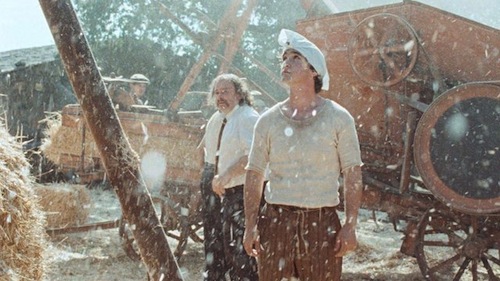Direction: Pietro Marcello
Country: Italy
Told with an interesting, old-fashioned-style charisma and counting on the crisp acting skills from Luca Marinelli and Jessica Cressy, this hooky cinematic version of Jack London’s 1909 novel Martin Eden exudes political turmoil and dramatizes a passion-fueled yet ill-fated romance marked by social inequalities.
Marinelli, winner of the Volpi Cup at Venice Film Festival, plays the title character with zeal, outlining an individual personality that changes drastically with the time.
Martin Eden, a penniless brave sailor with a knack for words, decides he wants to be a writer shorter after he meets Elena Orsini (Cressy), an elegant upper class young woman with whom he instantly falls in love. The relentless man becomes self-instructed, writing about the world of sadness, addiction and despair that he knows so well, but employing a raw, incisive style that doesn’t please the aristocrats. He then befriends Russ Brissenden (Carlo Cecchi), a socialist poet who owns a local newspaper, and his ideas become centered in individualism rather than the collectivism that unites slaving workers against greedy bosses. Naturally, such a rebellious behavior causes a painful rupture in his relationship with Elena. Despite the success of his literary work, Eden feels helpless to prevent that loneliness, doleful sarcasm and perpetual bitterness take possession of his next stage of life.
Writer/director Pietro Marcello, who is also a documentarian, opts for a cheesy soundtrack, but compensates with a compelling storytelling and stalwart imagery, driving us into the strange lyrical world of a character, who, straddling between two different worlds, never vacillates in the purpose to be true to himself.
Hence, if you go for the romance, prepare yourself to be engulfed by a socio-political context that turns out as poignant and merciless as the love story itself.









































